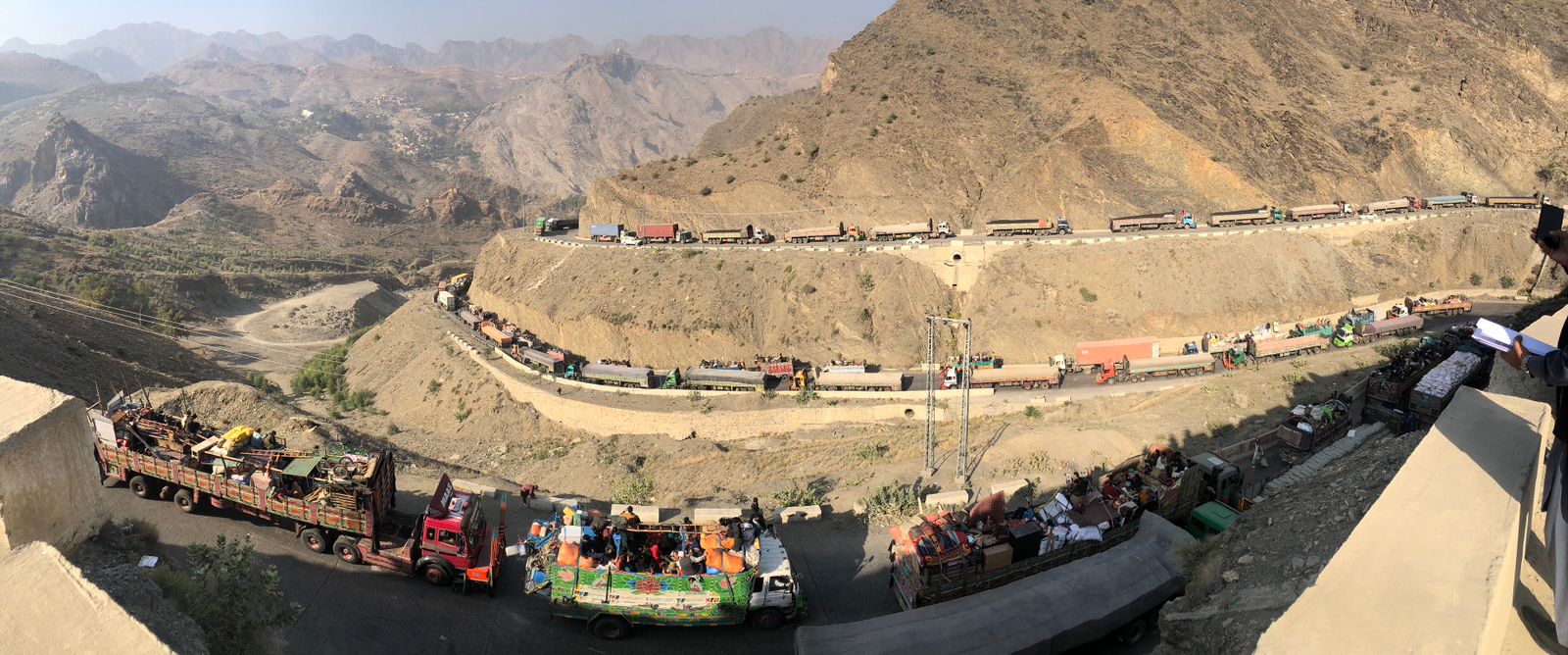Razia's Resilience: A Beacon of Hope for Gender Equality
The People's Primary Healthcare Initiative (PPHI), with UNFPA’s support and funding from the Bureau of Population, Refugees, and Migration (PRM) is running the Haji Saifullah Basic Health Units (BHUs) in Chaman, Balochistan located near the Afghanistan-Pakistan border.
Razia's journey to BHU Haji Saifullah proved to be a turning point in her life. She walked into the health unit, burdened by the weight of cultural norms that had imprisoned her in a cycle of violence and oppression. Despite her education and a deep desire to work, Razia's husband's fears of social criticism had coerced her into giving up her job, stripping away her independence.
“As the primary breadwinner for my family, this left me not only financially vulnerable but also trapped in a toxic environment that was detrimental to my mental health and well-being,” said Razia.
A ripple of change started to manifest in a community awareness session that a psychologist from the BHU was leading. The session recognized the urgency of dismantling the cycle of violence and recommended that Razia seek help. The psychologist empathized with Razia's situation, realizing that her case was emblematic of larger issues related to individual empowerment and the dire consequences of stifling personal and financial independence.
Under the gentle guidance of the psychologist, Razia embarked on a transformative journey toward self-discovery and empowerment. “I received psychological counseling that focused on coping strategies and self-esteem, offering me tools to combat the ongoing pressure and stress I had been facing. The importance of open communication within her family, especially with my husband, was discussed to confront and challenge the deeply ingrained gender-based beliefs and stigmas that had stifled her life,” she explained.
With each counseling session, Razia's transformation gained momentum. She slowly but steadily reclaimed her self-worth and initiated conversations with her husband, endeavoring to break free from traditional norms. She worked to make him understand the importance of sharing the burdens of family life to meet their economic needs. While this journey was not without its setbacks, her unwavering determination, coupled with the newfound knowledge from the counseling sessions, helped her build a healthier and more supportive relationship with her husband.
Razia's evolution transcended her personal life. She emerged as a powerful advocate for gender equality and individual empowerment within her community, inspiring others to challenge the status quo. In patriarchal societies like Razia's, this transformation is often met with resistance, especially from male family members, where women's employment is not a common practice. Nonetheless, she remained resolute and hopeful, setting an example for her community to follow.
Razia's story highlights the critical importance of addressing cultural and societal beliefs that hinder individual well-being and empowerment at both the household and community levels. Her journey is a testament to the transformative potential of awareness and support networks in dismantling the chains of gender and cultural norms. It ignited hope and possibility for countless other women and girls who aspire to change their lives and the lives of others in rigid and patriarchal communities.
As the journey of change continues, the stories of Razia and others like her serve as a powerful testament to the positive impact of PRM-funded projects in reshaping lives and breaking down the barriers of cultural norms.

a large number of Afghan families leaving Pakistan [Shahzad Asad/IOM Pakistan 2023]
Saba’s journey towards breaking the cycle of violence
Saba, a 25-year-old resident of Loralai, arrived at the Women and Girls Friendly Space (WGFS) weighed down by her untold sorrows and physical frailty. A Lady Health Visitor (LHV) consultation marked the beginning of her journey towards a healthier lifestyle.
Hardship had marred Saba's life. “My husband subjected me to sexual, physical, and psychological violence. His relentless demand for more children and his drug addiction placed an unbearable burden on my modest income from embroidery work, driving me into severe depression, panic attacks, and hypertension,” Saba explained.
The compassionate support from Women and Girls Friendly Spaces, run by People's Primary Healthcare Initiative (PPHI), with UNFPA’s support and funding from the Bureau of Population, Refugees, and Migration (PRM) played a crucial role in Saba's recovery. Through consultations with an LHV and a psychologist, she received psychosocial support, counseling, and stress management techniques.
Saba’s case was referred to the Fighting Poverty through Healthcare Danish organization, which stabilized her finances and facilitated her husband's treatment. Saba's transformation was profound. Her financial hardships lessened, and her mental health improved significantly. Grateful and hopeful, Saba expressed, “I thought my life would be spent in darkness and hopelessness, but today I am hopeful for a brighter and contented life.”
Saba's journey was filled with challenges, but with carefully coordinated interventions, including psychological support, addressing her physical health concerns, and comprehensive referrals, she triumphed over adversity.
The WGFS became a beacon of hope, helping Saba reclaim her life and reshape her future. Her inspiring story underscores the life-changing impact of timely and compassionate intervention on the lives of women in dire need.
Impact of the repatriation process on the life-changing programme
Following the Pakistan government-imposed deadline for repatriation of 1 November 2023, numerous Afghan refugees and migrants in Pakistan have started making their way to the border to return to their homeland.
Psychosocial activities remain crucial even after the repatriation, as they help individuals cope with trauma, manage stress, and rebuild their lives.
UNFPA and its partners like PPHI must continue providing psychosocial support services, focusing on vulnerable groups, promoting cultural sensitivity, ensuring safety, involving communities, and preventing gender-based violence. Ongoing psychosocial support is vital for the well-being and successful reintegration of returning refugees.

![Intensifying outflow of Afghan families and individuals at the Torkham border. [Shahzad Asad/IOM Pakistan 2023]](/sites/default/files/styles/original/public/news/1000_15.png?itok=AbfxiQyj)
